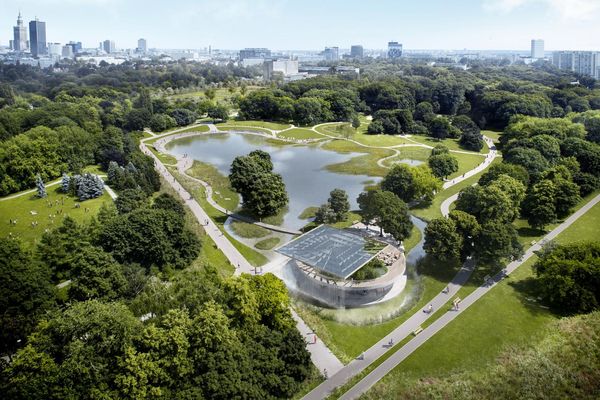„Moscow last year earned $50 billion from oil and gas supplies to the EU. And this year, due to the increased prices, the Russian revenues will reach $40 billion already in the coming days,” says energy expert Olivér Hortay. At what cost can Europe cut oil and gas imports from Russia? How realistic are the current embargo proposals? Interview on Hype&Hyper
The oil and gas embargo is increasingly highlighted in discussions about the Russo-Ukrainian war nowadays. A proposal regarding the oil embargo is almost on the table in Brussels. If we consider the Central and Eastern European region, is it possible to cut Russian oil and gas imports in one and a half or two years?
One addition: we do not yet know what is in the proposal regarding the oil embargo. According to press rumors, a differentiated and time-shifted system was on the table last week that would have limited deliveries. But the latest information has been about a price ceiling that would maximize the price that Russia could charge for the oil it supplies.
What lies behind this hesitation?
The sanctions have been evolving over the past month. On the 24th of February, Russia invaded Ukraine; the following day, the European Union announced that it would not impose sanctions on energy supplies. Therefore, the market calmed down and priced the war with a modest price increase. Before the war, prices were hovering around €80 per megawatt-hour, and that week it increased to €92. Then, in the following weeks, many Western political representatives started to argue that immediate sanctions ought to be imposed. The peak of this political communication campaign was on the 6th of March when Kadri Simson, the European Commissioner for Energy, Robert Habeck, the German Minister for Economic Affairs and Climate Action, and Antony Blinken, the United States Secretary of State, announced that a very intensive work on energy sanctions was underway. After a day, there was a very significant price increase: gas prices went up to €345. Since then, prices have remained high, mainly reflecting fear of sanctions since market players are aware that immediate sanctions would have disastrous economic, social, and technical consequences. It seems now that immediate sanctions are off the table. However, cutting energy supplies from Russia in the medium and long term is very much discussed.
And what will be the solution?
The European Commission has already made a proposal to cut gas supplies by two-thirds by the end of 2022. It means one hundred million cubic meters. Fifty billion of this would be covered from LNG, twenty-four billion from renewable energy sources and heat pumps, and we would save fourteen billion due to reduced residential demand. Ten billion would come through pipelines from other countries, and the remaining three billion would be covered by biomethane production. However, this proposal is not realistic. Fifty billion cubic meters of LNG is the maximum capacity available on the world market by the end of the year, for which Europe is competing with Asia and other major regions. Even if we manage to buy this quantity from the market, the EU has no technical infrastructure capacity to receive, transport, and distribute it. Getting twenty-four billion cubic meters from renewable sources and heat pumps is also not achievable; it takes much longer to build that substantial new capacity, not to mention the shortage of raw materials. Reducing the residential consumption demand by fourteen billion cubic meters sounds absurd; many people would be outraged if they were told how much they could heat their homes. Receiving ten billion from alternative pipelines seems feasible; however, it would not be easy either. Lastly, only half of the planned three and a half billion cubic meters from biomethane production is achievable.

Let us assume that the European Commission is aware of these numbers. You mentioned above that an intense communication campaign had changed their attitude on sanctions. Who is behind this pressure?
I can only give a speculative answer to this question. Firstly, we might think of public pressure, but opinion polls show the opposite: people oppose restricted supply and do not want drastic price rises. Another possible explanation might be American pressure. Initially, the US was heavily pushing the European Union to impose sanctions. But there has been a shift recently in American foreign policy. Last week at the Spring Meetings of the International Monetary Fund (IMF) and the World Bank Group (WBG), the US Secretary of Treasury appealed to the EU not to impose an oil embargo. The main reason behind this shift is the coming US midterm elections since gasoline prices have already risen by 70% since Joe Biden’s inauguration. J.P. Morgan has published a study forecasting that the current USD 105 Brent crude oil price would increase to USD 175 if Europeans imposed an oil embargo, which would have very significant consequences for the entire world economy. We should also not forget that Russia could relatively easily sell its oil to China or India instead of Europe.
But at what cost?
Since world market prices would rise, the US Secretary of Treasury believes Russia’s revenue would increase.
So, if not public pressure and not the US, who is behind the sanctions policy?
My hypothesis is that the European Commission has a very strong energy policy agenda that it wants to push through, and they are using the current historical events to reframe this agenda. I think the Commission’s policy has an extreme democratic deficit. Opinion polls show that the European public opinion is many times in sharp contrast with the ambitions and objectives of the European Commission.
This is clear, yet it seems that European politics is almost in a race against time…
We were talking about short- and mid-term goals so far, but at the same time, a war of numbers has started among the Member States to see who will be the quickest to cut off energy trade with Russia. I think it is important to clarify that this is an ideologically driven objective. Energy policy has three pragmatic purposes: improving environmental performance, competitiveness, and security of supply. The difficulties come when these goals conflict in one measure, which often occurs. If we add ideology-driven objectives, we further reduce our performance on the pragmatic ones. From the perspective of the security of supply, it is a reasonable long-term objective to reduce the European market’s dependence on the Russian supply. Nonetheless, it is also evident that the shared optimum of security of supply, competitiveness, and environmental protection does not mean completely cutting off trade between Europe and Russia. Regional refineries are usually dependent on large quantities of Russian oil. Thus, an oil embargo would lead to significant price increases, in addition to the risks to the security of supply. According to the Commission’s logic on sanctions, solid fuels would be followed by oil, and gas would be the last one. However, it seems now that the economic damage resulting from the oil embargo would be unacceptable to many Member States. It is also questionable how much damage it would cause to Russia. Moscow last year earned $50 billion from oil and gas supplies to the EU; three-quarters of the revenue came from oil exports. And this year, the increased prices due to the discussions on sanctions resulted that Russian revenues from oil and gas supply will reach $40 billion already in the coming days.
How much investment is needed in Central and Eastern Europe to achieve independence from the Russian gas and oil supply? In which areas do we already have the necessary infrastructure, and where and how do we need to build new infrastructure? When will resource diversification be finally possible?
It is difficult to give concrete answers, but there are some bottlenecks. The most crucial issue is time: It takes years to extract or even license the existing capacity that has already been explored, and finding new sources of natural gas takes even longer. Pipeline construction also does not happen overnight. Therefore, infrastructure development cannot offer a short-term solution.
Olivér Hortay Ph.D., energy expert, the Head of the Energy and Climate Policy Division of Századvég Konjunktúrakutató Zrt.

Architects’ Festival to be organized for the first time

Modernization of one of Warsaw’s most popular park soon to be finished










